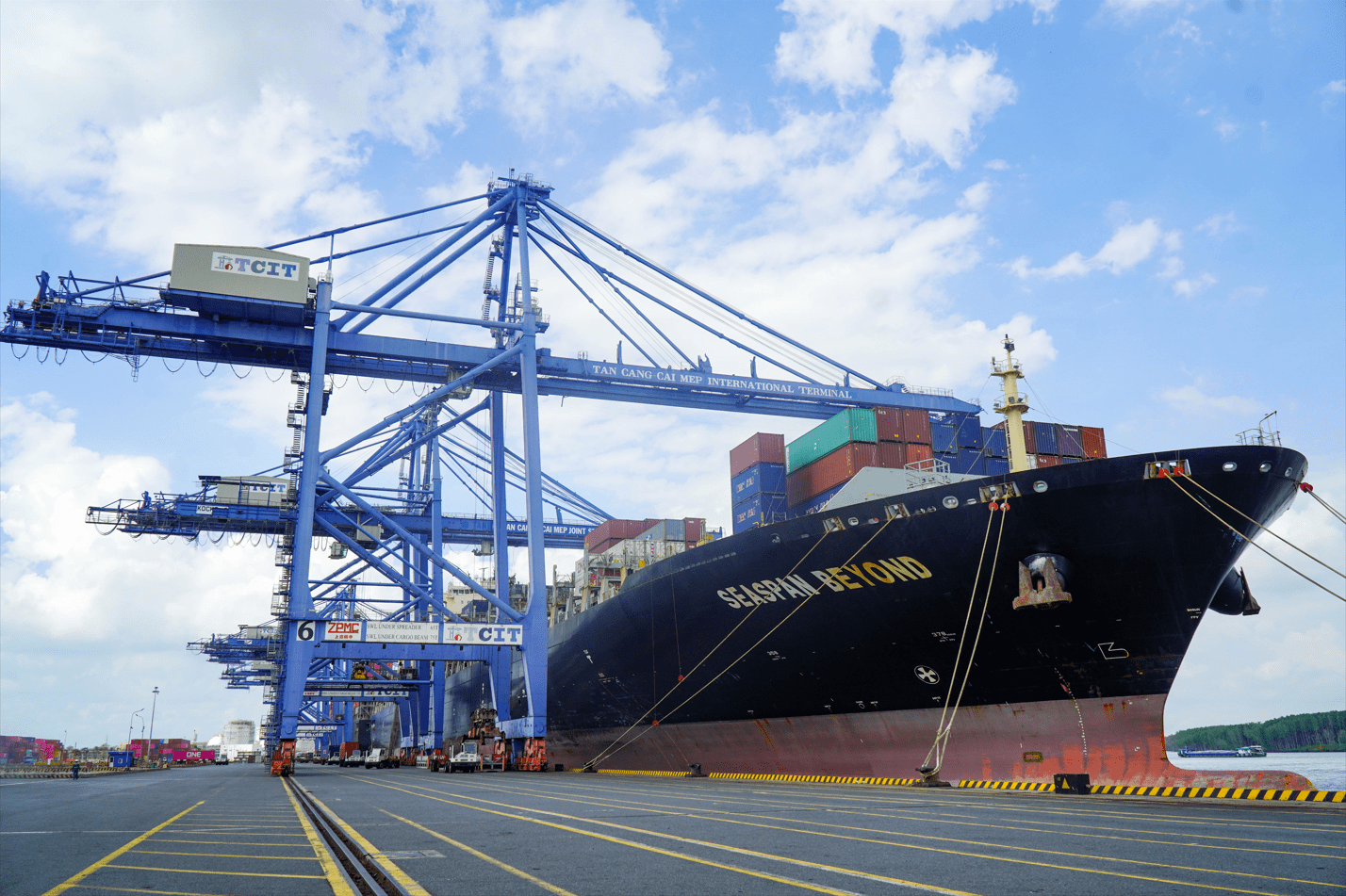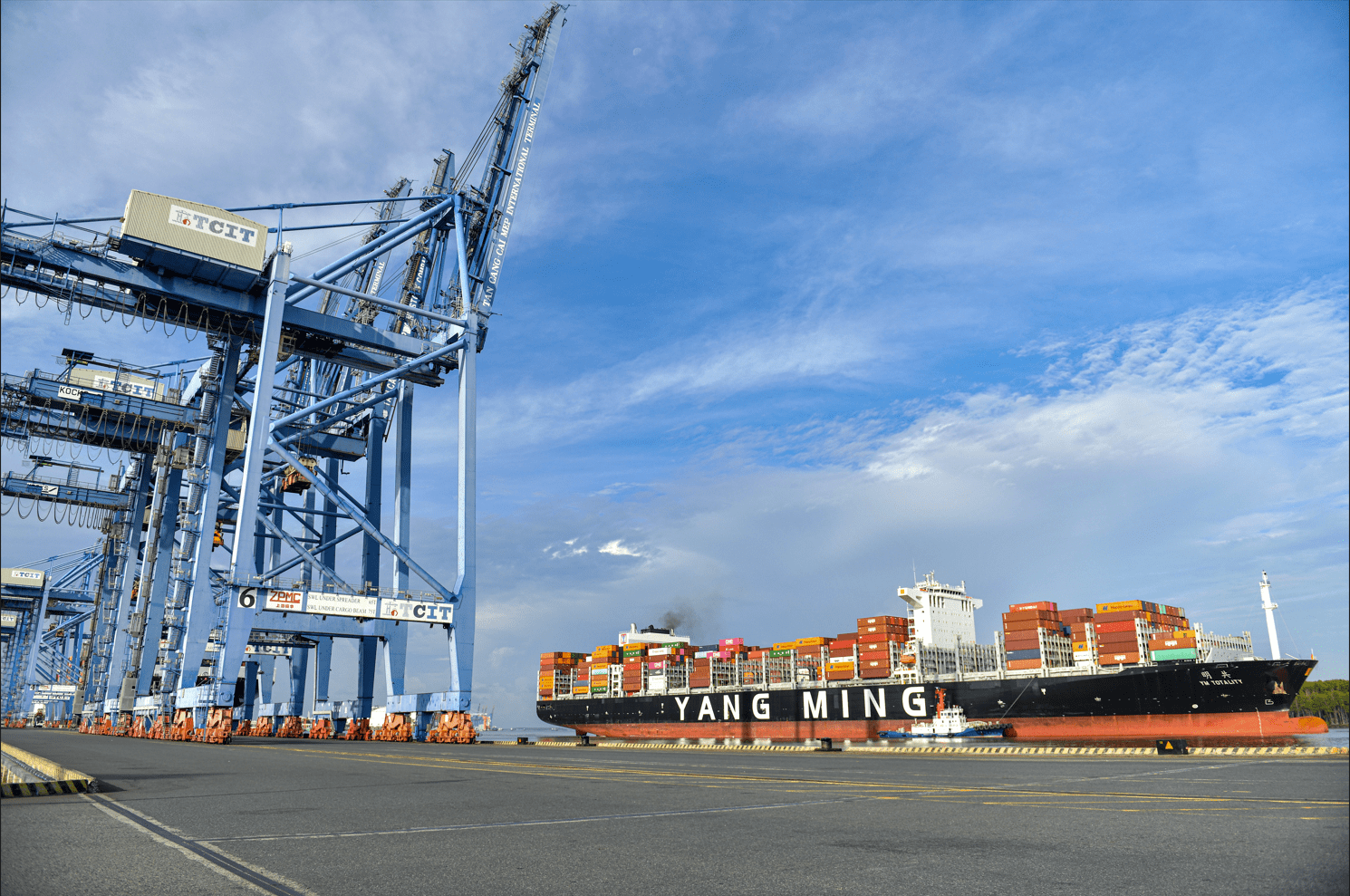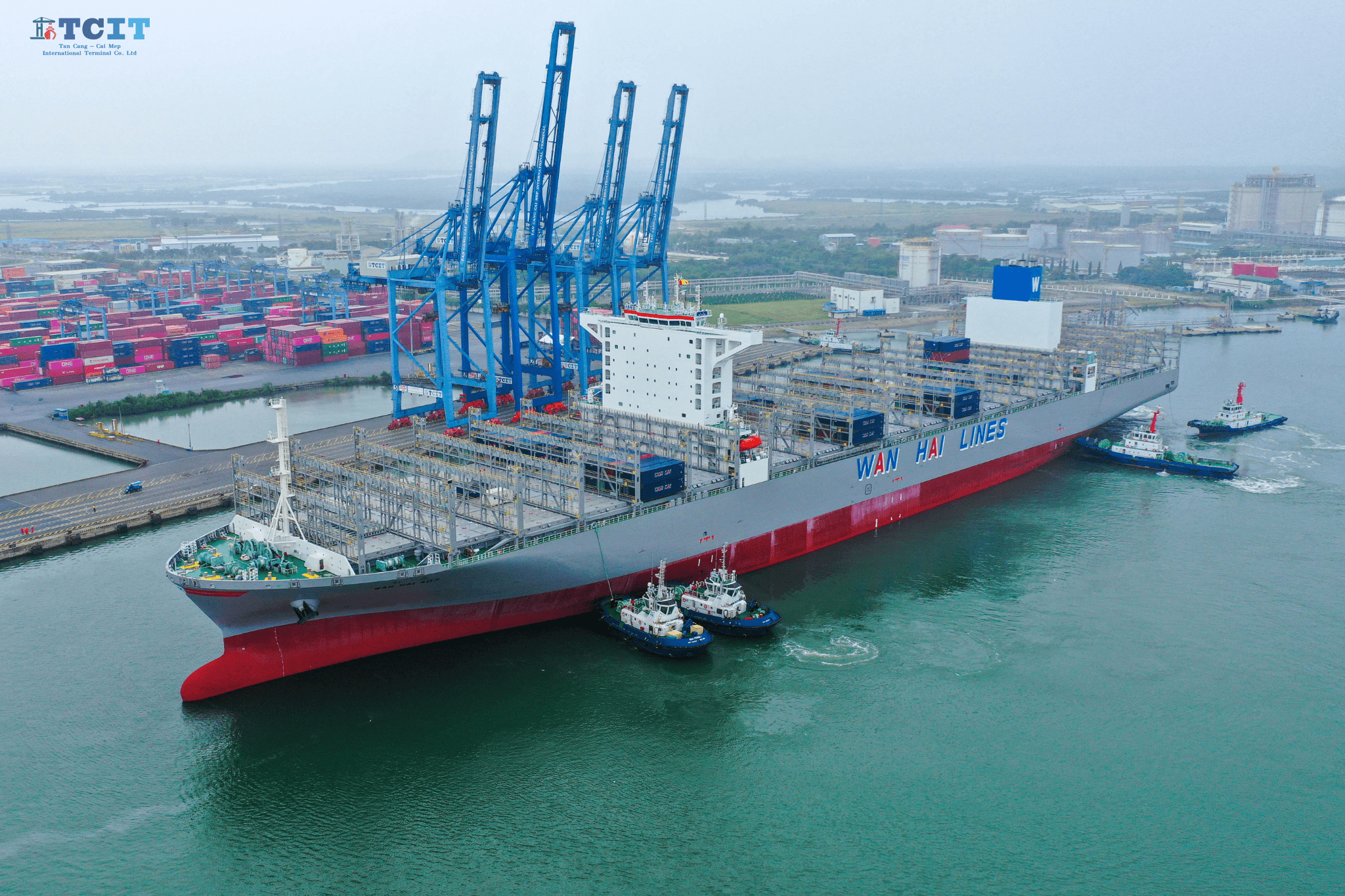HMM Sets Sights on 25 Pct Higher Revenue in 2020
Korean shipping giant Hyundai Merchant Marine (HMM) roughly anticipates a 25% improvement in its revenue for 2020, reaping the fruits from the impending deployment of its mega container vessels.
Twelve 24,000 TEU containerships are scheduled to be sequentially delivered as of April this year and thereby deployed in the Asia-Europe trade under the service network of THE Alliance.
“Once HMM operates mega container vessels in earnest, overall sales volumes and revenue is expected to be increased accordingly based on a range of efforts to enhance its sales competitiveness, in particular, in the field of back-haul business,” an HMM spokesperson told World Maritime News.
The spokesperson added that the rise in revenue is expected “notwithstanding continued uncertainties in the global trade environment.”
“In addition to the rise in revenue, it is needless to say that 2020 will be the year to improve our profit structure as well,” he concluded.
HMM is expected to add some 34 ships to THE Alliance’s network this year, adding up to 519,000 TEUs.
Last week, THE Alliance unveiled an expanded service network for 2020 as it welcomed HMM as a full member.
With the US Federal Maritime Commission’s acceptance of HMM membership, the carrier will join its three counterparts in the alliance, Hapag-Lloyd, Ocean Network Express (ONE), and Yang Ming.
THE Alliance plans to launch the upgraded product package around April 1, 2020.
Port of Hamburg not expecting volume reduction from liner service changes
The Port of Hamburg is confident it can maintain its volumes despite the loss of an Ocean Alliance service, with existing volumes from the alliance partners set to be shared between its other services that call the German port.
From April, the Ocean Alliance NEU 5 service handled by EUROGATE Container Terminal Hamburg (CTH) is being transferred to Antwerp.
This service will be run by the Ocean Alliance Partner, CMA CGM as FAL 3 with an approximate annual volume of 150,000 teu.
According to the French carrier, the entire container volume carried until now to and from Hamburg by this service will be handled by the five Ocean Alliance liner services – NEU 2, NEU 3, NEU 4, NEU 6 and NEU 7 – continuing to call in Hamburg.
Axel Mattern, joint CEO of Port of Hamburg Marketing, said: “In the course of optimising annual planning, the resulting transfer of one of the six services creates no overall problem either for the shippers or the Port of Hamburg. The container cargo will continue to be handled in its entirety by these services in Hamburg.
“In the shipping industry such liner service adjustments are absolutely normal when the shipping alliances develop new products and present no cause for concern. Hamburg is not losing any cargo because of it.”
The transfer of the FAL 3 service is a decision taken by the Alliance partners to optimise ships’ voyages within the context of its global service network, noted a statement from the port authority, and a shortfall in container cargo is not to be expected.
Maersk’s weekly ME1 service which had until now served India via Dubai and Saudi Arabia, calling at Hamburg, Bremerhaven and Wilhelmshaven on the way, will temporarily not be calling at Hamburg from February.
The Danish line stated in a customer advisory that the container cargo previously carried on ME1 can continue to be seamlessly handled on Maersk’s AE7 service to and from Hamburg.
Ingo Egloff, who is Axel Mattern’s Joint CEO at Port of Hamburg Marketing, said: “The majority of containers from the ME1 service will continue to be handled in Hamburg after the fairway adjustment.
“The 12 mega-containerships deployed in the AE7 service with a capacity of between 16,500 and 19,500 teu offer the necessary transport capacity.”
After suspending the ME1 service, Maersk will be calling Hamburg with a total of five container liner services.
xChange: Empty Containers Piling Up in Shanghai
Empty containers are piling up in Shanghai, the world’s biggest port, according to the data from xChange, a Germany-based startup focusing on the repositioning of containers.
“The Container Availability Index shows relatively high values for 40 High Cube containers (0.58), 40 Dry Cargo containers (0.46) and 20 Dry Cargo containers (0.62),” xChange said commenting on the impact of coronavirus on container availability.
As explained, every number above 0.5 indicates a surplus of equipment.
“Looking back at the last two years, we can see container availability growing by 10% from 2019 and by even 17,7% from 2018. However, the container availability forecast shows similar values for 40 HCs (0.55), 40DCs (0.17) and 20DCS (0.55) Qingdao – indicating small deficit of containers … maybe because companies are still trying to get their cargo out of China from a port, further away from Wuhan?” the company continued.
Events like virus outbreaks often have a huge impact on shipping and container logistics.
“Downsides from decreased vessel demand far outweigh positives from fleet inefficiencies, particularly in cases when an epidemic epicentre is China. For shipping lines, such events lower utilization rates and result in higher costs on routes as most companies are concerned that the potential inability for Chinese employees to work at mills, refineries, factories and terminals due to quarantine situation. The first sign of that is that the Chinese government already expanded the New Year holidays by 3 days,” xChange added.
The coronavirus outbreak, stemming from the inland city, Wuhan, Hubei province, has spread to some of China’s major port cities such as Shanghai, Guangzhou, Shenzhen, and Tianjin. The virus outbreak coincides with the Chinese New Year in the last week of January when large population movements from China are expected.
As such, additional cases have been identified in a growing number of countries internationally such as South Korea, Japan, Taiwan, Thailand, and Singapore as well as one case in the United States.
Singapore starts temperature checks for Wuhan coronavirus at ports and terminals
In an effort to combat the spread of the coronavirus Singapore has started temperature screening of seafarers and passengers arriving at ports in the country.
The Maritime & Port Authority of Singapore (MPA) said temperature screening for all arrivals had started at PSA Terminals, Jurong Port and all cruise and ferry terminals.
“Travellers and ship crew arriving at sea checkpoints will undergo temperature screening conducted by on-site healthcare assistants. Suspect cases will be referred to the hospitals for further assessment,” MPA said,
“MPA has put up health advisories at the sea checkpoints to advise travellers and ship crew on the precautionary measures to take when travelling, as well as to remain vigilant and adopt good hygiene practices at all times.”
CSAV Ups Stake in Hapag-Lloyd
Chilean Compañía Sud Americana de Vapores (CSAV) has acquired an additional stake in Hapag-Lloyd, becoming the majority shareholder in the German shipping major.
On January 13, 2020, CSAV said it increased its stake in the carrier to 52.7 million shares, equivalent to almost 30%. Previously, CSAV owned a 27.8% shareholding in Hapag-Lloyd.
As informed, the transaction includes an investment of close to USD 300 million. It will be financed with a debt contracted by Quiñenco S.A., a company controlling CSAV.
Furthermore, the board of directors of CSAV agreed to hold an extraordinary shareholders meeting in the next few weeks to propose a capital increase of USD 350 million. Specifically, the capital increase would be used “to adjust the debt level of the company.”
Yesterday, World Maritime News reported that CSAV decided to close its maritime vehicle transport (RoRo) business and focus on its container shipping business.
“The decision was taken by CSAV in the context to focus all its economics and administration efforts on managing and developing its main business: its stake in the German shipping company Hapag-Lloyd,” the company explained.
Hyundai Group on a Winning Streak
Hyundai Heavy Industries Group is starting the year on a high note having secured multiple new contracts worth over USD 228 million.
The company’s subsidiary Hyundai Samho Heavy Industries has won an order for the construction of a large crude oil carrier worth KRW 109.2 billion (USD 93.5 million).
The shipbuilder did not reveal the identity of the owner, disclosing solely that the client is based in Europe.
The vessel is scheduled for delivery in June 2021.
Furthermore, the group’s Hyundai Mipo Dockyard revealed in an exchange filing that it has inked a construction contract for four petrochemical carriers with Pan Ocean.
The value of the contract is KRW 157.4 billion (USD 134.7 million). The quartet is slated for completion by September 2021.
The latest ordering spree comes on the back of last week’s reports that clients of Central Shipping placed an order for 2 Suezmax tankers at Hyundai Heavy Industries. According to Clarksons Platou Shipbroking, both vessels are expected to deliver in 2021.
Maersk CEO: EU Antitrust Rules Hurt European Companies’ Competitiveness
Current competition rules in Europe prevent the creation of giant EU companies that would be able to compete with US and Chinese rivals, Søren Skou, CEO of Danish shipping major Maersk, warned.
In an interview with Danish business magazine Finans, Skou explained that EU competition rules need to be interpreted in light of the new economic and geopolitical reality.
According to Maersk CEO, in the long run, it will hurt consumers if we don’t modernize and adjust the way we interpret the EU competition rules and the economic concepts to that reality so that EU companies can better compete on equal terms.
His comments were confirmed to World Maritime News by a Maersk spokesperson. The comments follow last year’s decision by the European Commission to block the merger between the French Alstom and German Siemens, Europe’s largest suppliers in the rail market. The decision has hurt the duo’s competitiveness, taking into account the rise of China’s player in this sector, CRRC.
Skou is a member of the European Round Table for Industry (ERT), a group comprising chairs and CEOs of 55 of Europe’s leading multinational companies.
In a recently released industrial strategy paper entitled “Turning Global Challenges into Opportunities”, the leaders of these companies have called for smart policies to enhance competitiveness, strengthen innovation and ensure that European companies can thrive in an increasingly complex world whilst creating value for society.
The recommendations included in the paper come at the same time as a new ERT report — “the Competitiveness and Industry Benchmarking Report 2019” — highlights how significantly the EU is falling behind other major economies on key indicators of economic performance.
The latest wave of mergers in the container shipping sector — including Maersk’s acquisition of Hamburg Sud — has been cleared in the European Union. However, it remains to be seen whether any new mergers in the European shipping sector would face a hurdle.
Hapag-Lloyd Inks Space Charter Deal with Maersk and MSC
German shipping major Hapag-Lloyd has signed a space charter agreement with the members of the 2M Alliance – Maersk and Mediterranean Shipping Company (MSC).
As informed, the space charter deal will give Hapag-Lloyd access to selected services of 2M on the Asia-North Europe trade.
“The addition of these services will enable Hapag-Lloyd to offer an even higher frequency of weekly departures and more routing options as well as to directly serve additional ports with high schedule reliability,” the company said.
The carrier’s expanded product offering on the Asia-North Europe trade will start in March 2020 and additional details will be provided in the coming weeks.
Earlier this month, Hapag-Lloyd revealed it was considering investments in new ships. The orders are likely to target ultra large container vessels (ULCVs) with the capacity of up to 23,000 TEUs, with the company following in the footsteps of its rivals CMA CGM and MSC which have already deployed some of their boxship giants on the Europe-Asia route.
(Source: American Shipper, Seatrade News World Maritime News)
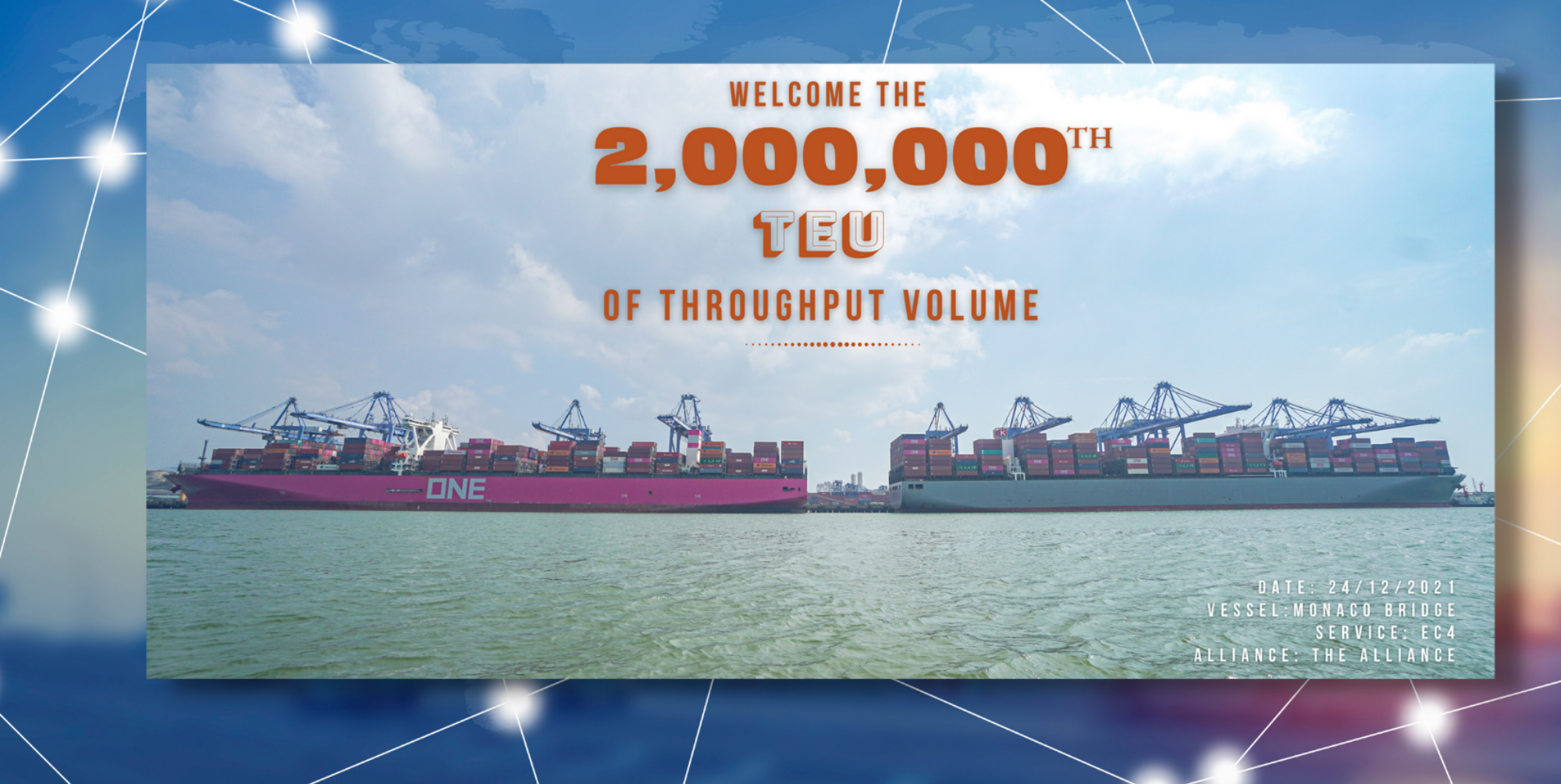
.png)

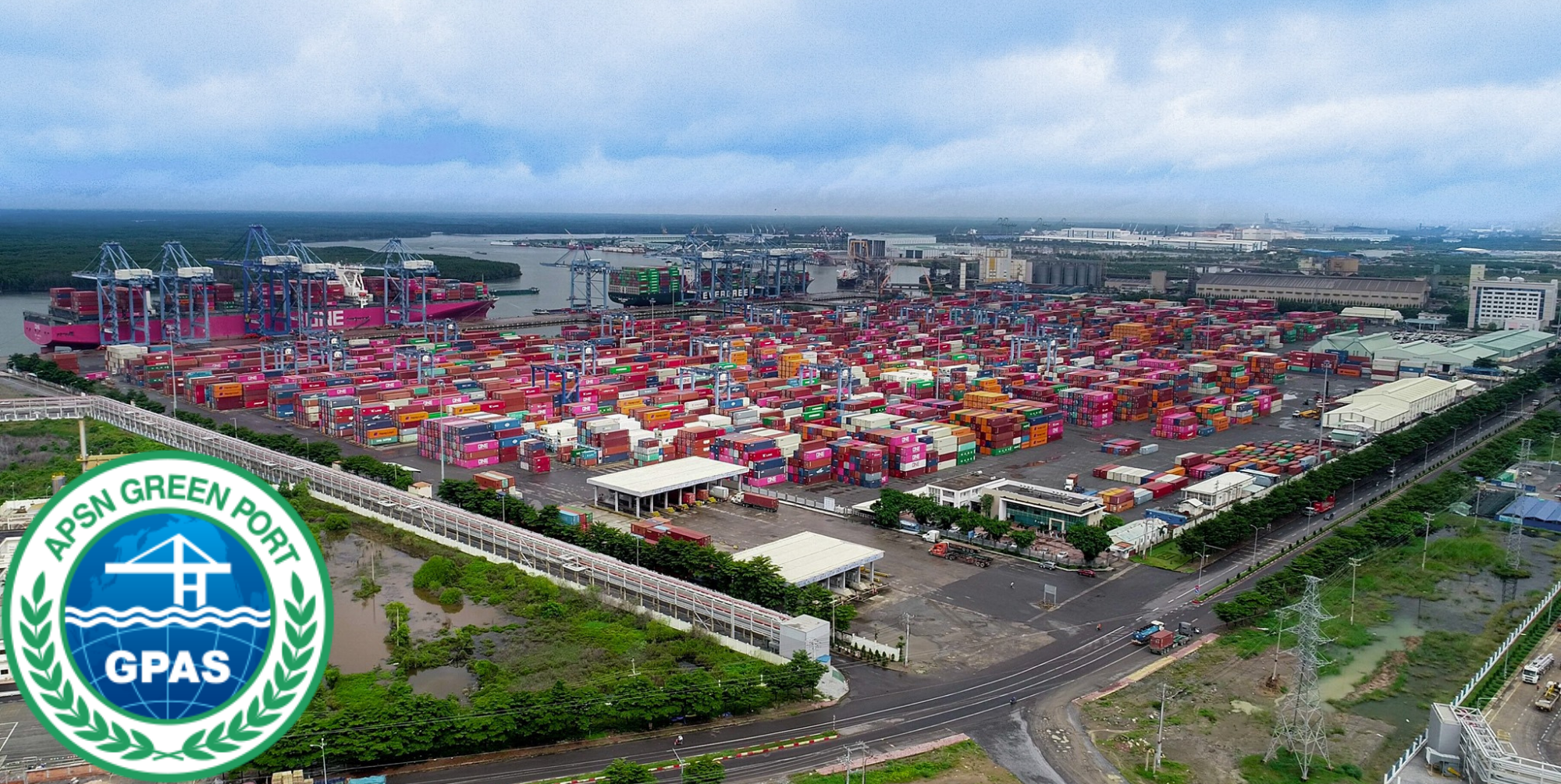

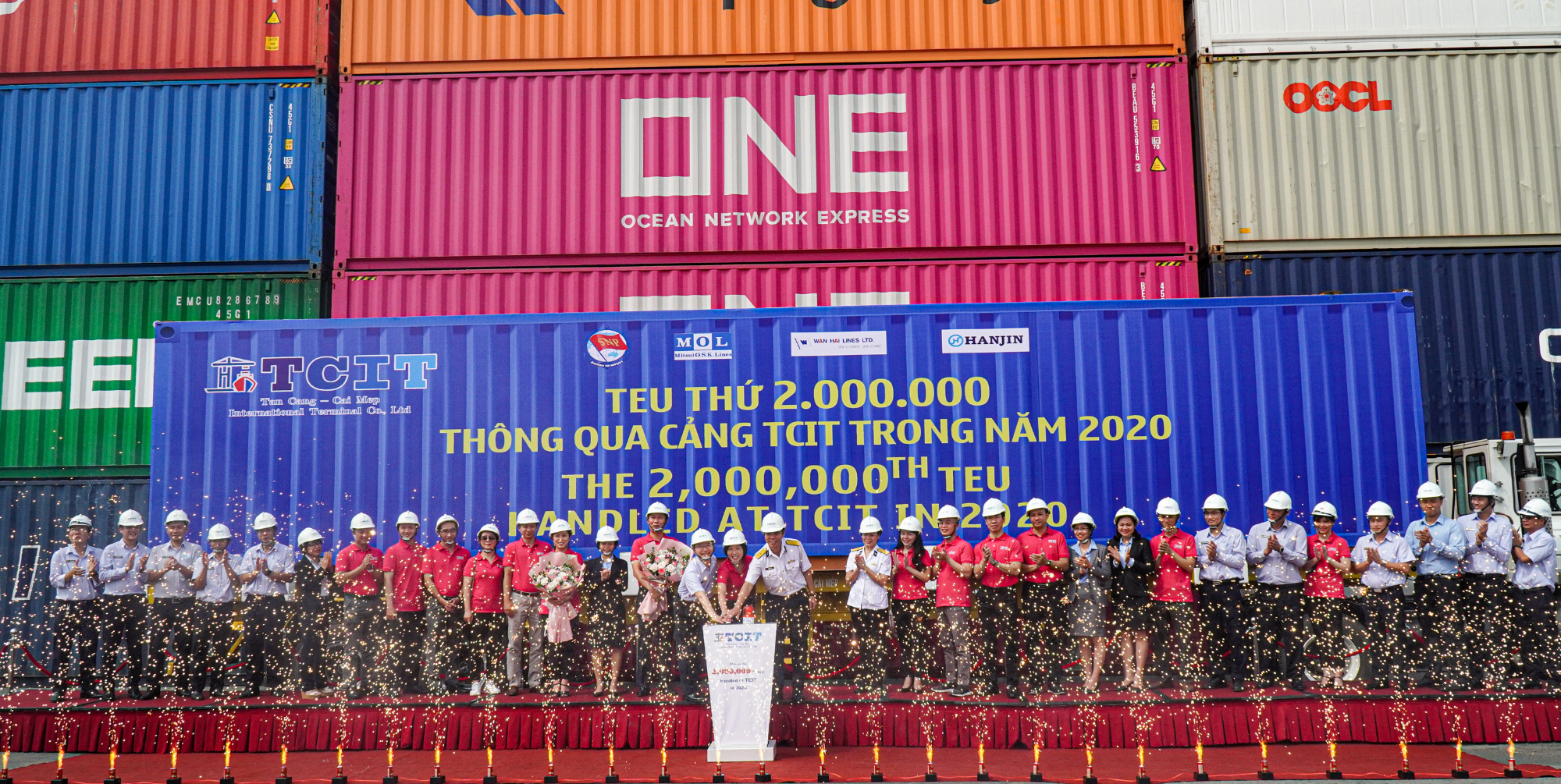
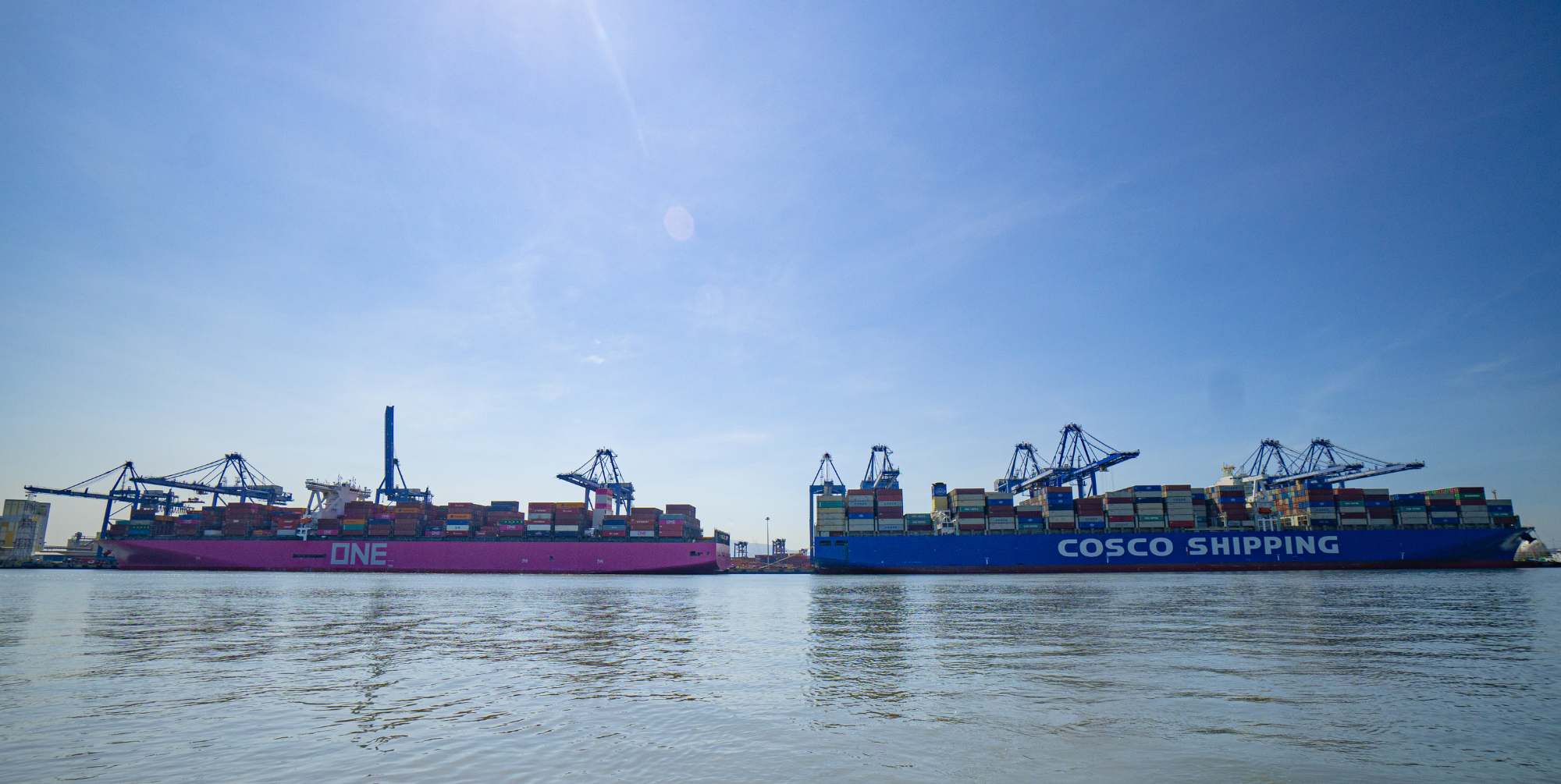
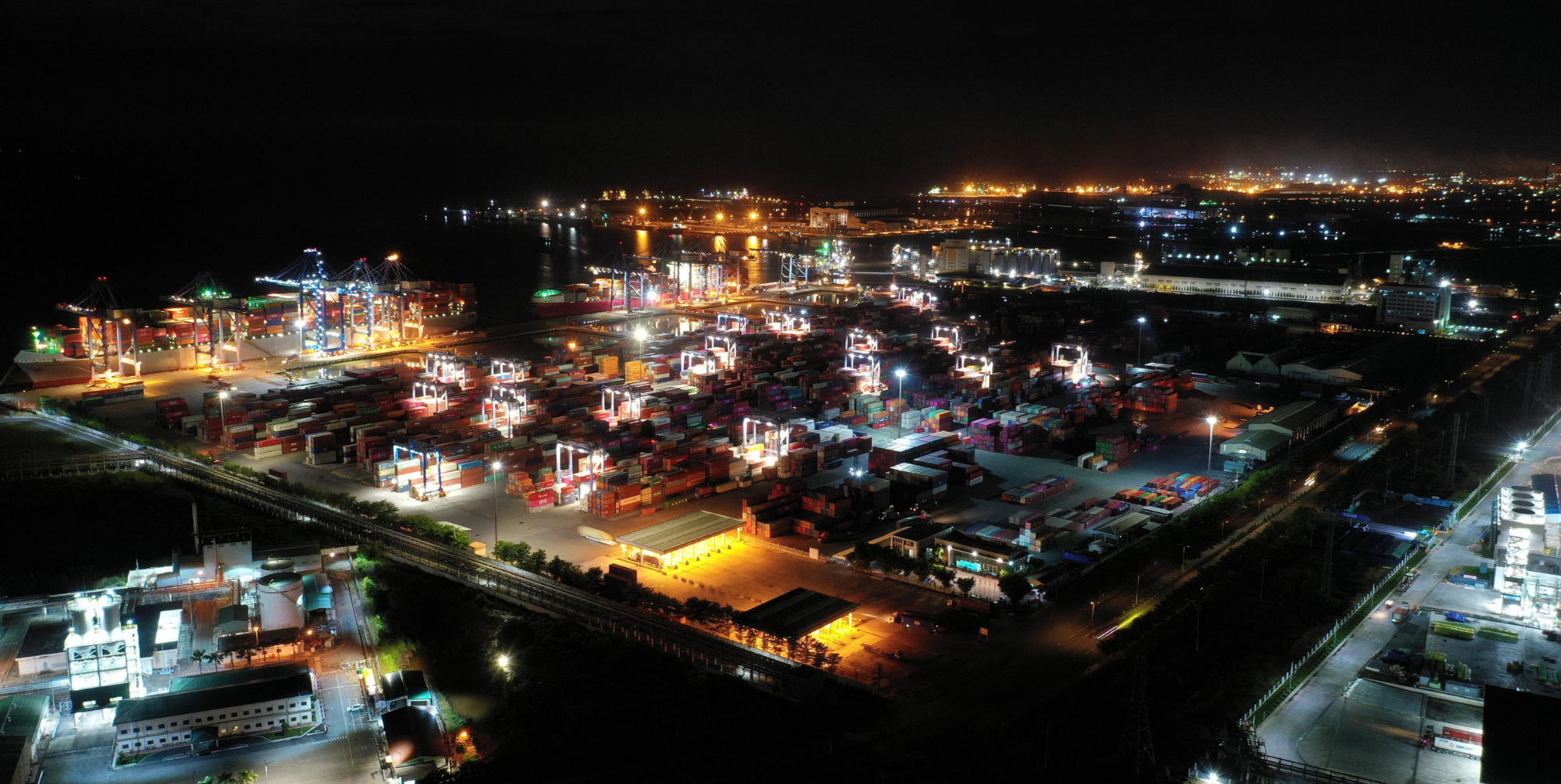
.jpg)
